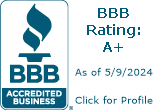Use Tax vs Sales Tax: What’s the Difference?

The concepts of sales tax and use tax can be very confusing for new and existing business owners. While agile accounting firms can adeptly calculate and counsel owners about these two tax forms, it’s helpful to have a basic understanding of them.
What is Sales Tax?
Sales tax is levied by governmental authorities on the sale, exchange or transfer of taxable goods and services. This tax is applied to the end user’s total price, based on the cost of the taxable goods or services. It’s typically calculated as a percentage of the sale price and collected by the seller from the consumer at the point of sale, then remitted to the relevant tax authority.
Note that sales tax rates and laws differ from state to state, and sometimes from county to county or city to city. Certain goods and services will be exempt from sales tax, depending on the specific state's tax code. In most U.S. states, for example, grocery whole foods are exempt from sales tax, whereas prepared foods—even from grocery stores—may be subject to sales tax.
Sales tax is considered a trust tax, since the seller is the separate entity collecting the tax when it makes a sale. The governmental agency “trusts” that the seller will remit the collected sales tax at a later date.
Example of Sales Tax:
A hypothetical example of sales tax would be: Fashion Haven, located in Dallas,
Texas, is a popular department store. A customer buys a brand new dress for $156.99. Texas state law requires that Fashion Haven charge the customer an additional 8.25% (state and local combined rate) of the selling price as sales tax. The customer pays Fashion Haven a total of $169.95. The extra $12.96 collected as sales tax will later be remitted to the Texas Comptroller of Public Accounts.

What is Use Tax?
Use tax is the tax that is charged for the consumption, use or storage of taxable goods or services that have had no sales tax imposed. In other words, there cannot be both a sales tax and a use tax; it’s either/or.
Use tax may be imposed on purchases where the taxing jurisdiction is out of the state, but the use is within the state. Today, use tax most commonly applies to online sales. In addition, often the use tax is self-calculated based on the state in which the buyer receives the goods or where they intend on using the goods.
Two types of use tax exist:
Consumer Use Tax is a tax that the buyer remits and self-calculates, and applies to taxable goods in instances where the seller didn’t collect sales or use tax during the time of purchase.
Vender/Retailer Use Tax applies to sales where the purchaser resides in a separate state from the seller, but the seller is registered in the state where the goods are to be delivered. This is essentially synonymous with sales tax.
Example of Use Tax:

Imagine that Cozy Threads, a business based in Boston, Massachusetts, buys trendy coats from a seller in New Hampshire, where no sales tax is collected. The coats are shipped to Cozy Threads in Boston . If the cost of the coats is $5,000, Cozy Threads may owe a use tax to the Commonwealth of Massachusetts. If, for example, the Massachusetts use tax rate is 6.25%, Cozy Threads would need to pay a use tax of $312.50 (6.25% of $5,000).
What is the Difference Between Sales and Use Tax?
There are several key differences between sales tax and use tax. Understanding these differences is essential, since it impacts tax collection, reporting and remittance obligations.
- Point of Collection: Sales tax is collected by the seller at the point of sale for later remittal. Use tax is paid directly by the purchaser to the state tax agency.
- Tax Responsibility: The responsibility for paying sales tax to the government agency rests with the seller. Payment of use tax is the buyer's responsibility, who must report and pay the tax, usually when they file their state income tax return.
- Transaction Location: Sales tax is generally charged on in-state sales or in any state where a remote seller has established nexus. Use tax applies to out-of-state purchases brought into the buyer's state for use, storage or consumption.
- Purpose: Sales tax is designed to raise revenue for the state by taxing the sale of goods and services. Use tax is intended to level the playing field between in-state businesses, which must collect sales tax, and out-of-state vendors that may not be required to collect sales tax.
What is Nexus and Why Does It Matter?
Nexus is a tax term that references the degree of business presence in a particular state necessary to trigger a tax obligation. It defines the connection between the seller and the government agency that represents a state that has legal authority to impose tax on the seller.
Without nexus, a state does not have that legal authority. For example, if a business called MotorParts is physically located in California and sells to consumers in California, MotorParts has a nexus in the state of California. The company does not have nexus in Texas, Nevada or other states where it’s not registered and has no physical presence. However, if MotorParts decides to sell parts to consumers online, it may create a tax nexus in the state where the consumer is located if MotorParts exceeds the economic nexus threshold within that state.
Nexus has traditionally been tied to physical presence. A business was said to have a sales tax nexus in a state if it had a physical location, employees, inventory, or property in the state. For example, a warehouse, office, or even a traveling salesperson within a state could establish nexus.
However, the rise of e-commerce has expanded the understanding of nexus. Now, states can assert an economic nexus based on the volume of sales or the number of transactions a business conducts within a state, even if the business has no physical presence there.
Taxes are inherently confusing, but hopefully this basic explanation of
what sales and use tax is will help your company to better understand your tax obligations. To maximize your business’ sales tax exemptions and get the most out of your accounting system, contact Agile Consulting today.












